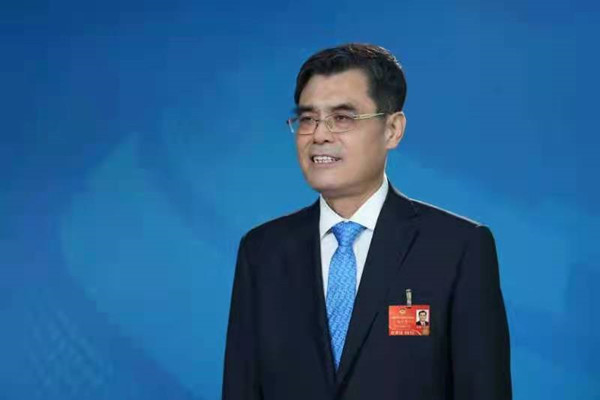Offshore wind power has become a new highland of global power technology as its construction calls for large investment and high technological requirements, said Shu Yinbiao, a member of the 13th National Committee of the Chinese People's Political Consultative Conference (CPPCC).
Shu, chairman of China Huaneng Group Co., Ltd. (China Huaneng), outlined at the annual sessions of China's top legislative and political advisory bodies that the country should improve its overall plan for offshore wind power bases, make breakthroughs in key technologies and optimize standards and regulations during the nation's 14th Five-Year Plan (2021-25) period.
China is home to rich wind power resources, which is of great significance in guaranteeing energy security and green and low-carbon development, as well as in realizing the country's goal of peaking carbon dioxide emissions by 2030 and reaching carbon neutrality by 2060.
By the end of 2021, China had a total wind power installed capacity of 26.39 million kilowatts, accounting for 54 percent of the world's total and ranking top globally.
Shu said that China should make full use of advantageous and innovative talents to make breakthroughs in design and manufacturing of large-capacity turbines and cutting-edge and precision bearings, and development of advanced blade materials.
Meanwhile, demonstration projects should be highly valued in developing the industry, and should include promoting development of offshore flexible direct current (DC) networking and light offshore convertor platforms, accelerating R&D and application of floating offshore wind power as well as cluster-type smart wind power operation, control and maintenance technologies.

Shu Yinbiao, a CPPCC member and chairman of China Huaneng, gives his suggestions on promoting large-scale development of the offshore wind power industry at the annual sessions of China's top legislative and political advisory bodies. [Photo/sasac.gov.cn]
He also suggested improving the overall plan and offshore wind resource exploration by building a national marine database to master offshore wind power resource reserves and distribution features.
He added that an offshore energy island integrating wind power, hydrogen, desalination and a marine ranch should be developed based on the offshore wind power bases to coordinately push forward environmental protection and resource development.
Shu stressed that fragmented development of offshore wind power should be restricted. An offshore wind power base should be designed, invested, built and operated by one enterprise to ensure that the bases give full play to their scale effectiveness.
(Executive editor: Niu Yilin)